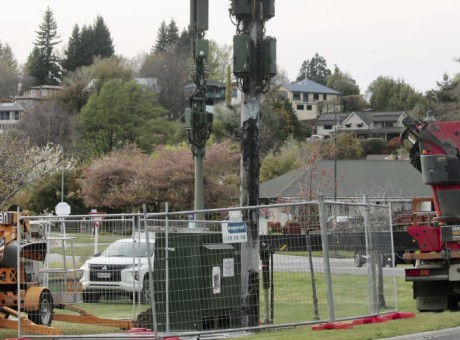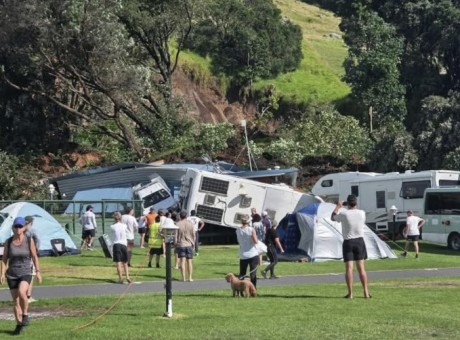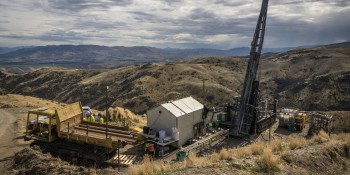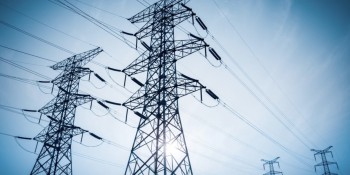Power Play: Voters off to the polls after rollercoaster campaign
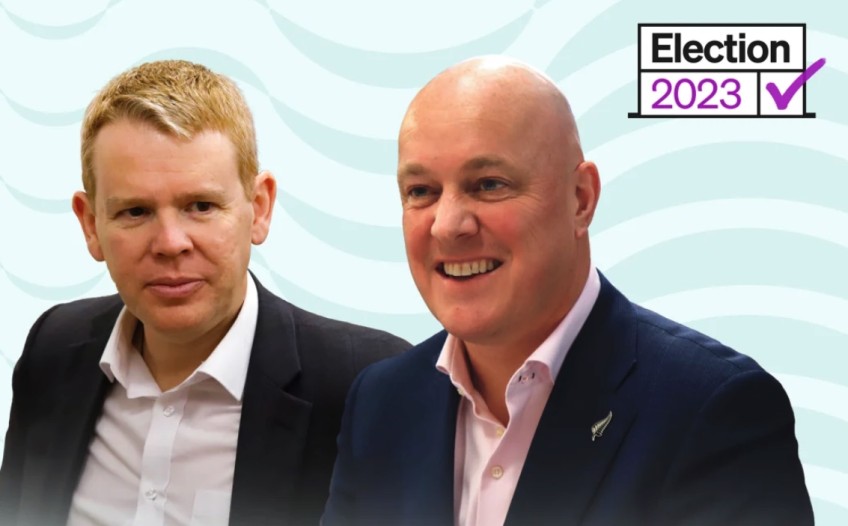
Power Play - After a rollercoaster campaign, election day is nigh - probably to the relief of many.
Fiscal fights, accusations of race baiting and a contest of policy ideas, in the hope of winning the privilege of leading New Zealand through the next three years, with challenges aplenty.
While National and Labour have been in a pitched battle, this campaign has also seen the rise of the smaller parties, in a way not seen in recent elections.
Looking back at past results the combined red and blue vote has been as high as 80 percent; not so in 2023, with RNZs Poll of Polls showing it's sitting at about 64 percent. That speaks to a tough three years, a disillusionment with the two parties many feel are not offering enough of a change, and a political turbulence borne out of the pandemic and everything that came with it.
There's been a lot of talk about New Zealand First and ACT, the dynamic between their respective leaders - culminating in an outbreak of civility and promises of co-operation - and the influential role they may play in a future National-led government.
On the other side, the Greens have got on with a relatively low key campaign, quietly mopping up voters disgruntled with Labour, capitalising on its fall in support and heading for one of their best ever results.
The energy and willingness of Labour leader Chris Hipkins to go negative - or "challenge" as he puts it - has increased with each passing week, demonstrated no more starkly than in last night's TVNZ Leaders' Debate, where out of the blocks he interrupted and needled Luxon throughout. Hipkins has also increasingly turned up the volume on criticisms of how the likes of beneficiaries and tenants, already paying exorbitant rents, would fare under National.
A step too far, though, firing back "none of my MPs beat people up with bed legs" (referring to National's Sam Uffindell) after Luxon alluded to the run of Labour's ministerial mishaps.
At this stage Hipkins has nothing to lose, clearly willing to take the risk of putting off some voters for the chance to land a blow on his opponent.
Luxon stayed calm and heeded the advice of his grandma to "go high when they go low". However, it was his dogged determination not to stray from his set lines that made him look at times evasive, particularly when pressed repeatedly about spending on the welfare system.
In its fiscal plan National lists a $2 billion saving over four years on benefits - compared to what Labour would spend. He objects to Labour's continued characterisation of that as a "cut" but finally conceded to reporters after the debate that beneficiaries, collectively, would receive $2b less than under a Labour government.
The strategic messages have also been sharpening. Labour is talking to the undecided voters and those who may not vote if they think it won't make any difference, the kiss of death to any campaign.
Trailing in the polls after the series of ministerial controversies, and arguably contributed to by Hipkins categorically ruling out a capital gains tax - after his own party higlighted the inherent unfairness of the tax system - has Labour in a fight for its political life.
Turnout will be a crucial element of this election and Labour will run its usual ground game, literally driving supporters to the polls if it has to.
The risk to National comes from its decision to rule in New Zealand First and its leader Winston Peters then proceed to bag the guy as unstable and as its absolutely "last resort" preference.
The point has been clearly made but at what cost to the nascent relationship with a leader Luxon may well have to rely on? National has also warned of a second election due to its own doubts about whether it would be able to strike a deal, hardly a move to inspire confidence in the leadership.
Personalities are integral to putting a government together, but there are also significant policy differences between the three parties; none of which would be easy to negotiate.
ACT's plan to hold a referendum on the treaty and its principles has been described as divisive by National and is an area where the larger party would have to step so carefully if ACT ended up with the leverage to force action.
New Zealand First could be expected to be staunch on opposing the partial lifting of the foreign buyers ban, a key money making policy to help fund National's tax cuts, and raising the age of superannuation that National's committed to - albeit in about 20 years.
Despite the back and forth and positioning over the last five or so weeks, there is now a commitment from all to do their best to put a government together, and block a third term for Labour.
If New Zealand First gets over the 5 percent threshold, that locks Peters in with National, having ruled Labour out months ago. Any deal though could take a number of different forms.
ACT leader David Seymour still can't bring himself to say he trusts Winston Peters, but recognising the risk of appearing to not be a team player, is now making the right noises about working constructively together. His option of having a confidence only deal and negotiating each other policy case by case remains in his back pocket, but again only to be used as a "last resort".
For his part, Peters has denied National any ammunition to further label him unstable or an agent of chaos, consistently talking about putting differences aside and getting around the negotiating table.
He went as far as promising there would be no second election during Tuesday's The Press debate, recognising how voters might react to even that remote possibility, and punish parties accordingly.
Early voting has already started but most New Zealanders will cast their ballot tomorrow. After that the picture is very uncertain; not only how the votes will fall for the respective parties but also how negotiations will roll out.
If New Zealand First is in the mix, Peters says he would want to wait for the final result on 3 November, which includes the hundreds of thousands of special votes from overseas and people voting out of their electorate, before getting into anything substantive.
Now it's up to you, the voters.
Here's the online guide to where you can vote locally.







